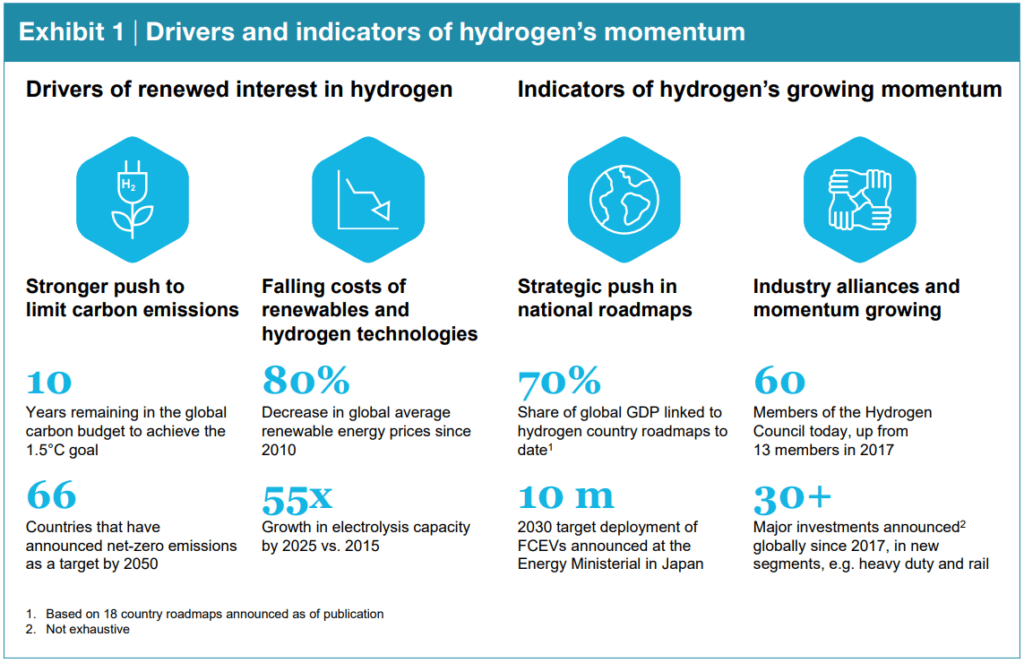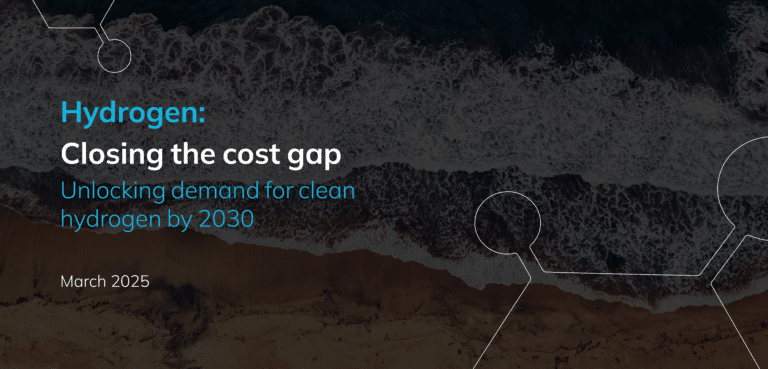As scale up of hydrogen production, distribution, equipment and component manufacturing continues, cost is projected to decrease by up to 50% by 2030 for a wide range of applications, making hydrogen competitive with other low-carbon alternatives and, in some cases, even conventional options.
Significant cost reductions are expected across different hydrogen applications. For more than 20 of them, such as long-distance and heavy-duty transportation, industrial heating, and heavy industry feedstock, which together comprise roughly 15% of global energy consumption, the hydrogen route appears the decarbonisation option of choice – a material opportunity.
The report attributes this trajectory to scale-up that positively impacts the three main cost drivers:
- Strong fall in the cost of producing low carbon and renewable hydrogen;
- Lower distribution and refuelling costs thanks to higher load utilisation and scale effect on infrastructure utilisation; and
- Dramatic drop in the cost of components for end-use equipment under scaling up of manufacturing.

To deliver on this opportunity, supporting policies will be required in key geographies, together with investment support of around $70 billion in the lead up to 2030 in order to scale up and achieve hydrogen competitiveness. While this figure is sizable, it accounts for less than 5% of annual global spending on energy. For comparison, support provided to renewables in Germany totalled roughly $30 billion in 2019.
The study is based on real industry data, with 25,000 data points gathered and analysed from 30 companies using a rigorous methodology. The data was collected and analytical support provided by McKinsey & Company, and it represents the entire hydrogen value chain across four key geographies (US, Europe, Japan/Korea, and China). Data was also reviewed by an independent advisory group comprised of recognised hydrogen and energy transition experts.



